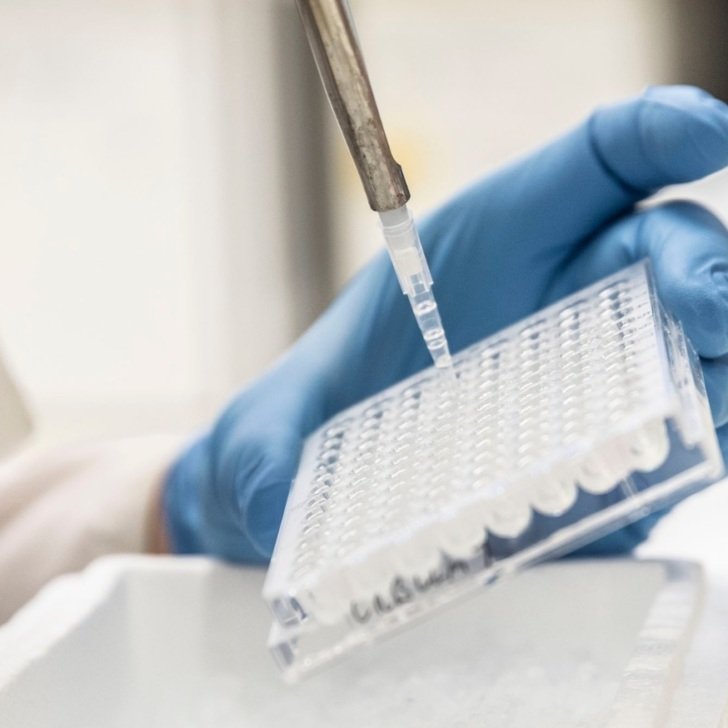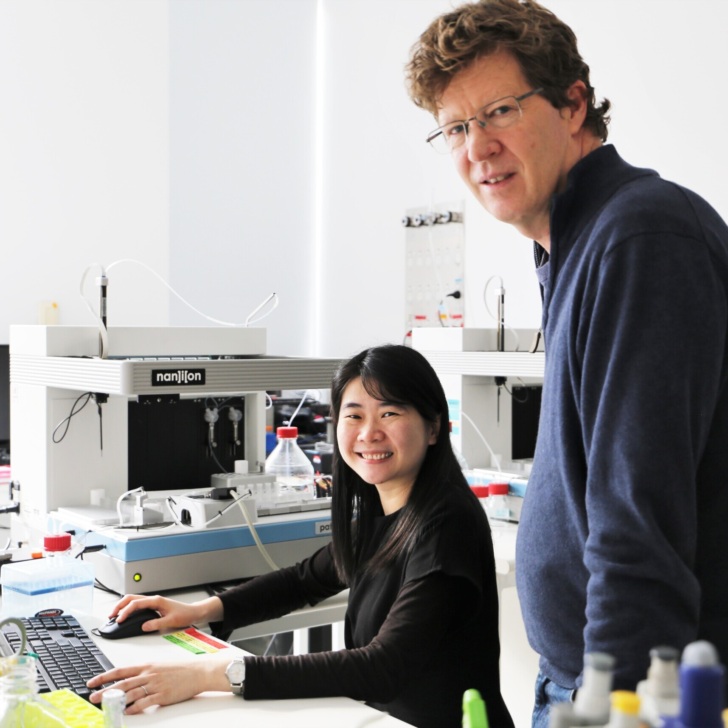
Sudden unexpected death in epilepsy
SUDEP is a sudden and unexpected death of someone with epilepsy who was otherwise healthy. It affects about 65 million people worldwide. The cause of SUDEP is largely unknown and there’s no method to effectively predict or prevent it from happening.
SUDEP often occurs while a person is asleep, making it a challenge to understand its exact cause. Certain conditions, such as having frequent seizures and seizures that begin at a young age can put a patient at a higher risk of experiencing SUDEP.
How the Florey is making a difference
Research is currently investigating complex changes in the brain-heart-lung function during a seizure, which are thought to cause SUDEP. However, until we have more answers about SUDEP, the only effective way to prevent SUDEP is by controlling convulsive seizures.
At the Florey, we’ve developed new experimental models of SUDEP based on human genetic information. We’ve used these models to identify markers of SUDEP risk in epilepsy patients and to investigate possible preventative treatments.
Florey researchers also work to identify brain structure changes that could tell us who is at higher risk of SUDEP. We aim to identify epilepsy patients who are more at risk of SUDEP and find treatments that will reduce this risk, saving epilepsy patients’ lives.
Researcher spotlight
Genetic modelling of SUDEP to reduce risk
Dr Ming Soh is a mid-career neuroscientist who drives the development of novel genetic models of SUDEP. She engineers mouse models that combine epilepsy and heart arrhythmia genes.
Her work includes testing currently available drugs in the genetic SUDEP models to see if they can reduce risk of premature death.

Research projects
Developing mouse models of SUDEP based on human genetic information
Genetic screening of patients that have died of SUDEP have identified changes in heart genes that can cause rhythm disruptions called arrhythmias. We have developed new mouse models that combine both epilepsy and heart arrhythmia genes that suffer premature death and therefore model SUDEP. This is exciting as it allows us to better understand why SUDEP occurs and to try treatments that may help reduce the risk of death. In this project, we will continue to develop new models with different epilepsy and heart arrhythmia genes to better understand the underlying mechanisms of premature death. We expect that different genetic causes will require different preventative treatments. We will be able to test these ideas in the new experimental models.
Understanding how drugs that impact the heart could increase the risk of SUDEP
Many commonly used drugs can block heart channels and potentially increase the risk of rhythm disruptions. It’s not known if these types of drugs can increase the risk of premature death in epilepsy. Our novel mouse models of SUDEP allow us to test how different drugs could change the risk of sudden death. We will look at a range of common drugs that include antibiotics, antipsychotics and drugs of abuse to see if they increase the chance of premature death in our genetic epilepsy models. This preclinical work will be important for informing clinical practice and identifying certain drugs that should be avoided in epilepsy patients’ treatment.
Neuroanatomical markers of SUDEP
Individuals with treatment-resistant epilepsy are at the greatest risk of SUDEP. Treatment-resistant epilepsy is associated with a range of neuroanatomical abnormalities, with atrophic brain changes observed both within and beyond the primary brain regions responsible for generating seizures.
The goal of this NIH-funded project is to explore the relationship between regional brain volume changes and SUDEP risk. The project will use MRI scans from epilepsy imaging centers to quantify brain region volumes and compare SUDEP cases with matched non-SUDEP epilepsy controls. The outcomes of the project will provide candidate MRI-based markers for SUDEP risk.
More information
While The Florey researches epilepsy, we do not offer medical advice or crisis support. For support or further information about epilepsy, contact the Epilepsy Foundation on 1300 761 487 or Epilepsy Action Australia on 1300 37 45 37.
Latest news
Latest Florey news on Sudden unexpected death in epilepsy



